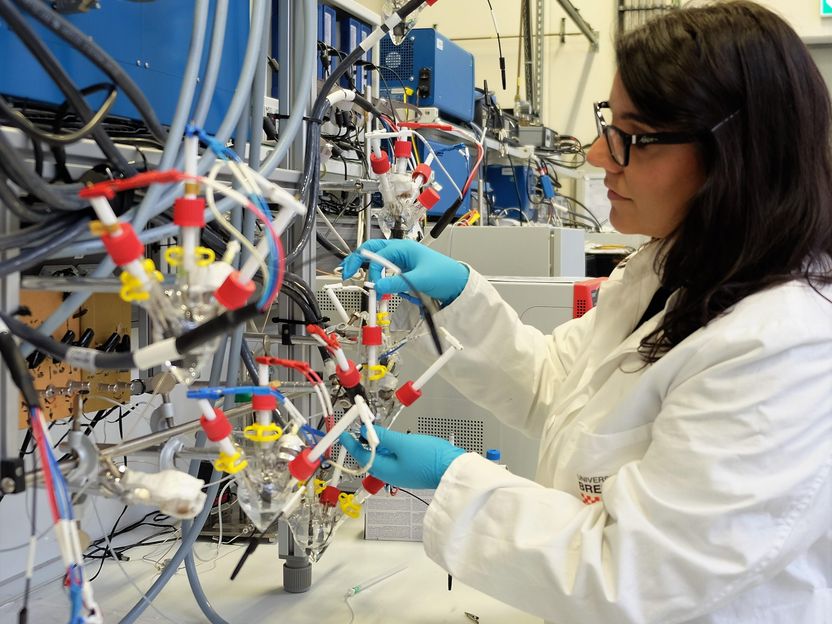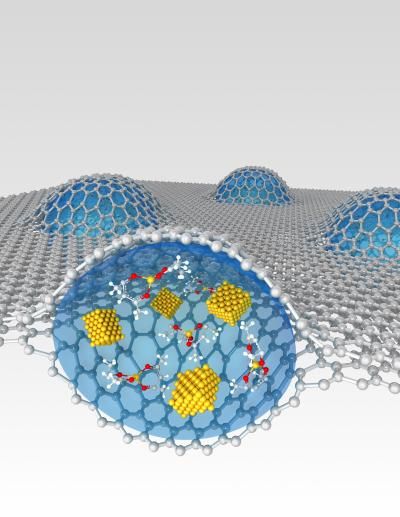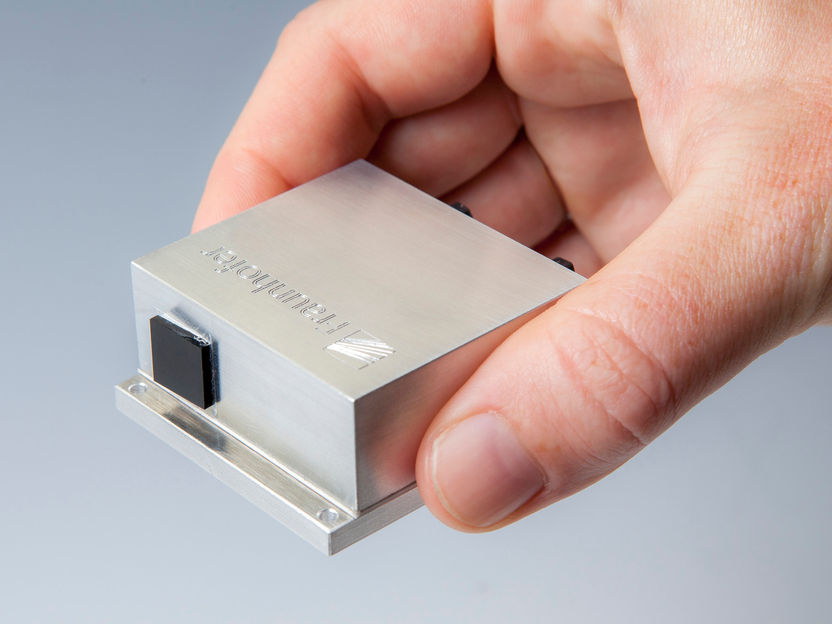On the Path to the Next Generation of Energy Storage Systems
Aqueous zinc-ion batteries without any risk of explosion or fire
Researchers at the University of Bremen are currently working successfully on the next generation of energy storage systems. Their goal is aqueous zinc-ion batteries that eliminate any risk of explosion or fire. Professor Fabio La Mantia and his team have now outlined the main challenges that need to be overcome in the further development of the novel battery technology in the scientific journal Nature Communications.

Research into tomorrow's energy storage systems: Giorgia Zampardi and Fabio La Mantia have now published new findings in Nature Communications.
Federico Scarpioni / Universität Bremen
The environmentally friendly energy supply of the future is one of the most discussed topics of our time. Our society needs and wants to become independent of fossil fuels in order to reduce CO2 emissions and defy climate change. "Green energy" from renewable sources such as wind farms and solar panels has received an unprecedented push. But developing ever cheaper and more environmentally friendly energy storage is just as important as "harvesting" the power. This is the only way to stabilize the power grid in the future, as it needs to be protected from power peaks or blackouts.
"Unfortunately, the already established energy storage technologies - such as the widely used lithium-ion batteries - are suboptimal in terms of environmental friendliness, cost-effectiveness, and safety due to the very strict specifications of the stationary energy storage market," says Professor Fabio La Mantia, head of the Energy Storage and Conversion Systems unit at the University of Bremen. He and his team are therefore researching in a different direction: "There is an emerging green energy storage technology based on abundant and inexpensive metallic zinc. Aqueous zinc-ion batteries could solve the current problems!"
Water-Based Technology Eliminates Hazards
Because this technology is water-based, any risk of explosion or fire is eliminated. Additionally, as the name suggests, zinc-ion batteries are composed primarily of metallic zinc and other mostly inexpensive and non-toxic materials. This not only reduces the final price of green energy, but at the same time reduces the risk of environmental pollution.
Despite the good specifications, however, aqueous zinc-ion battery technology is currently still far from large-scale commercialization. Researchers at the University of Bremen are focusing on overcoming the challenges to make aqueous zinc-ion batteries market-ready. Fabio La Mantia's research group is focusing on developing novel zinc-based anodes, which are to improve the stability and lifetime of zinc-ion batteries. The group is also working on the development of low-cost environmentally friendly cathode materials and the optimization of water-based electrolytes.
In the scientific journal Nature Communications, Professor La Mantia and his team have now described the important challenges that the scientific community will soon face in advancing this novel battery technology. In addition, they have developed guidelines for good experimental practice so that scientists from around the world can align their research efforts with industry standards and needs. Fabio La Mantia: "The goal is to accelerate the commercialization of this promising, environmentally friendly battery technology."
Original publication
Other news from the department science
Most read news
More news from our other portals
See the theme worlds for related content
Topic World Battery Technology
The topic world Battery Technology combines relevant knowledge in a unique way. Here you will find everything about suppliers and their products, webinars, white papers, catalogs and brochures.

Topic World Battery Technology
The topic world Battery Technology combines relevant knowledge in a unique way. Here you will find everything about suppliers and their products, webinars, white papers, catalogs and brochures.






























































